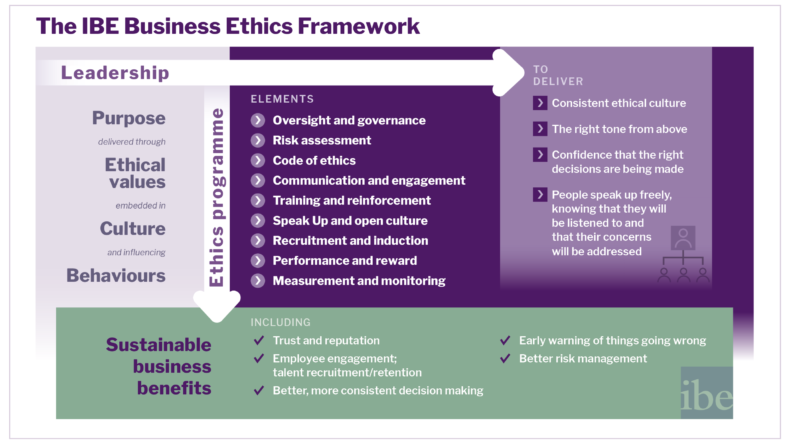Business Ethics Feedback: Understanding, Evaluating, and Implementing Effective Strategies
In today’s competitive business environment, business ethics plays a critical role in shaping organizational reputation and long-term success. Ethical behavior fosters trust, drives innovation, and builds strong relationships with customers, employees, and stakeholders. One of the most effective ways to assess and improve business ethics within a company is through regular and constructive business ethics feedback.
This article delves into what business ethics feedback is, why it is essential, and how companies can use it to create a transparent, ethical work culture. We will also explore best practices for collecting, analyzing, and implementing feedback to ensure your company aligns with its ethical standards.

What is Business Ethics Feedback?
Business ethics feedback refers to the process of gathering input from employees, customers, and other stakeholders about the ethical practices and decisions made within a business. It involves evaluating how well a company adheres to its ethical principles and identifying areas for improvement.
Feedback can come in many forms, such as surveys, interviews, and anonymous suggestions, and it should focus on various aspects of ethical behavior. This may include honesty in advertising, fair treatment of employees, environmental responsibility, and transparency in decision-making.
Why is Business Ethics Feedback Important?
Business ethics feedback is a critical tool for businesses looking to assess their ethical standing and improve their practices. Here are some of the reasons why it’s vital:
-
Building Trust and Reputation: Consistent feedback allows businesses to maintain trust with their employees and customers. When businesses act ethically, they build a strong reputation, which is essential for long-term success.
-
Enhancing Employee Morale: Employees who feel that their company values ethics are more likely to feel motivated and engaged. They are also more likely to stay with a company that reflects their personal values.
-
Identifying and Addressing Ethical Issues: Feedback provides insight into potential ethical problems, such as discrimination, fraud, or unfair business practices. It helps businesses take proactive measures to address and resolve these issues before they escalate.
-
Compliance and Risk Management: Regular ethical feedback can help a company stay compliant with laws and regulations. It reduces the risk of legal issues and fines by ensuring that business practices are up to ethical standards.
Key Areas of Business Ethics Feedback
When collecting business ethics feedback, it’s essential to focus on specific areas that directly impact the overall ethical climate of your organization. Below are some key areas to consider when seeking input.
1. Honesty and Integrity in Business Practices
One of the fundamental aspects of business ethics is maintaining honesty in all business dealings. Feedback should assess whether employees and leaders are transparent, truthful, and trustworthy in their actions. This includes evaluating whether companies are honest in their advertising, dealing fairly with customers, and upholding their promises.
-
Example Questions: Are marketing materials truthful? Do employees feel that leaders are honest in communications?
2. Fair Treatment and Equal Opportunities
Fair treatment and equal opportunity are essential components of a strong ethical framework. Ethical feedback should evaluate whether all employees, regardless of gender, race, or background, are treated fairly and given equal opportunities for growth and advancement within the company.
-
Example Questions: Do employees feel that they are treated equitably? Is there evidence of favoritism or discrimination?
3. Environmental and Social Responsibility
Companies today are expected to be socially and environmentally responsible. Ethical feedback should explore how well the company practices sustainability, reduces its environmental impact, and contributes to society.
-
Example Questions: Is the company making efforts to reduce its carbon footprint? How does the company contribute to the community?
4. Transparency in Decision-Making
Transparency in decision-making is crucial for maintaining ethical standards. Feedback should assess how open the company is about its decision-making processes and whether it involves stakeholders in key decisions that may impact them.
-
Example Questions: Are company decisions made transparently? Do employees feel that they have a voice in important decisions?

Collecting Business Ethics Feedback
Collecting business ethics feedback effectively requires a structured approach to ensure the data gathered is valuable and actionable. Here are some strategies for collecting meaningful feedback:
1. Anonymous Surveys
Anonymity encourages employees and stakeholders to provide honest and candid feedback without fear of retaliation. Using surveys allows organizations to reach a broad audience and gather insights into various aspects of business ethics.
-
Best Practices: Ensure that the survey is well-designed and focuses on relevant ethical issues. Make sure to include both quantitative and qualitative questions to gather both statistical data and personal experiences.
2. Focus Groups
Focus groups provide a platform for in-depth discussions on ethical concerns. This method is ideal for understanding how employees feel about certain practices and uncovering hidden ethical issues.
-
Best Practices: Keep the group size small to encourage open discussion. Ensure that a diverse group of employees is included to get a variety of perspectives.
3. One-on-One Interviews
Conducting one-on-one interviews with key employees, managers, or stakeholders allows for more personalized feedback. These interviews help uncover deeper insights into the company’s ethical culture and practices.
-
Best Practices: Create a safe space for employees to speak openly about their concerns. Use open-ended questions to allow the interviewee to share detailed feedback.
4. Feedback Boxes or Hotlines
Feedback boxes or hotlines allow employees and customers to share their concerns anonymously. These can be particularly useful for reporting ethical violations or providing suggestions for improvement.
-
Best Practices: Make sure the process is easy to access and the feedback is reviewed regularly to ensure timely responses to issues raised.
Analyzing and Implementing Feedback
Once feedback is collected, the next step is analyzing it to uncover trends, issues, and areas for improvement. This can be a challenging process, but it is crucial for making informed decisions.
1. Identify Common Themes
Look for recurring issues across different feedback channels. These could indicate systemic problems or ethical breaches that need immediate attention. For example, if multiple employees report concerns about discriminatory behavior, it’s important to address this issue swiftly.
2. Act on Feedback
Feedback alone is not enough; it’s essential to take action. Develop clear strategies for addressing the concerns raised and ensure that changes are communicated to employees. This shows that the company values ethical behavior and is committed to making improvements.
3. Track Progress Over Time
Once changes are made, continue collecting feedback and track progress over time. This will help you understand whether the changes have had a positive impact on the company’s ethical culture and whether further adjustments are needed.
Best Practices for Business Ethics Feedback
1. Create a Culture of Open Communication
Foster an environment where employees feel comfortable providing feedback. This includes actively encouraging ethical feedback and ensuring that all employees understand the importance of ethical behavior.
2. Provide Ethical Training and Resources
Regularly train employees on ethical decision-making and company values. Providing resources such as a clear code of ethics and ethical decision-making frameworks can help guide employees in making the right choices.
3. Recognize and Reward Ethical Behavior
Recognizing and rewarding ethical behavior reinforces the importance of ethics in the workplace. This can be done through formal recognition programs or informal acknowledgments.
Frequently Asked Questions (FAQs)
1. How often should businesses collect ethics feedback?
Feedback should be collected regularly, ideally on an annual or semi-annual basis. However, you should also provide opportunities for employees to report ethical concerns whenever they arise.
2. What should companies do if they receive negative feedback about their ethics?
Companies should take negative feedback seriously and act promptly. Address the issue by investigating the concern, developing an action plan, and communicating the results to employees.
3. Can ethics feedback help prevent legal issues?
Yes, regular feedback can help businesses identify and address ethical issues before they lead to legal problems. By staying proactive, companies can avoid costly legal disputes and regulatory violations.
Conclusion
Business ethics feedback is a crucial component of any organization’s strategy to maintain ethical standards and foster a positive work environment. By collecting, analyzing, and acting on feedback, companies can build trust, improve employee morale, and enhance their reputation. Adopting best practices for feedback collection and implementation will help businesses stay accountable and ethical, leading to long-term success.




